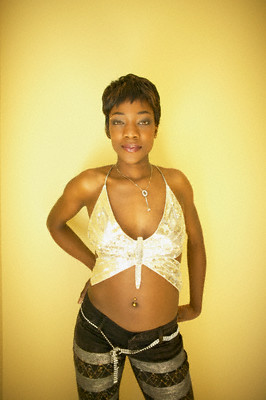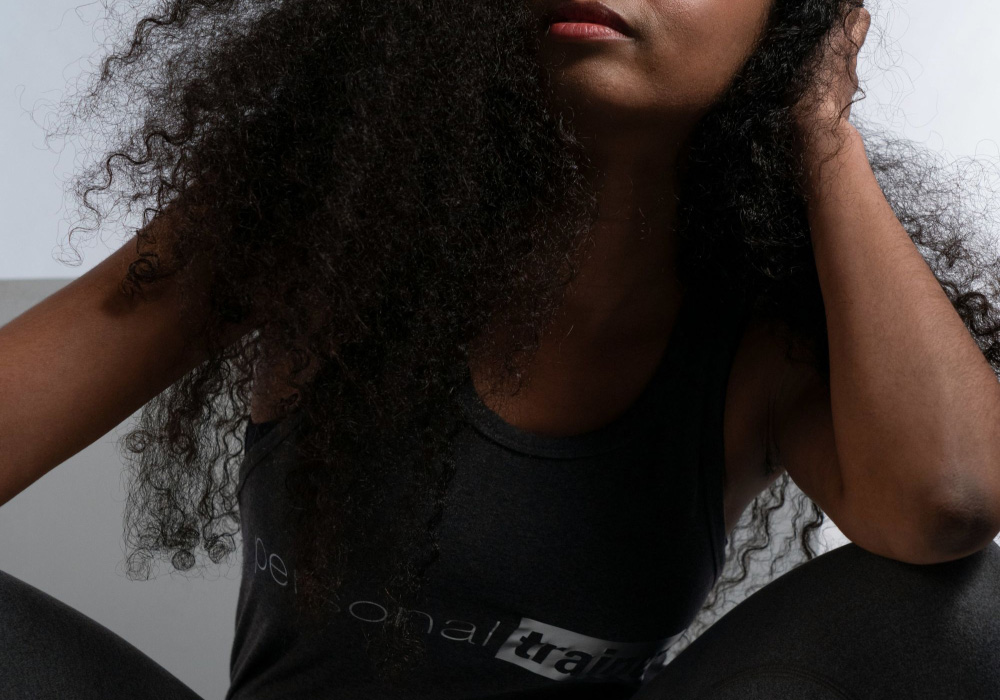
The Connotations of Don Imus, Isiah Thomas, Music Videos and the B-Word
Why is it that black women and their images are increasingly ignored, stereotyped, overlooked, typecast, disapproved of, denigrated, disrespected and rejected without mainstream media firestorm condemning it? The cases where this occurs are endless. The general silence, indifference and complicity of the Black community when it comes to disrespecting black women is alarming. With the exception of icons such as Oprah and magazines such as Essence, seldom is the portrayal of black women in the mainstream media positive.
Never-ending Negative Portrayals of Black Women
MTV aired a cartoon entitled “Where My Dogs At?” to young Saturday morning viewers, which had black women squatting on all fours, tethered to leashes. Naomi Campbell, one of the most visible black women,, despite her successful modelling career, is mostly mentioned when it's about her cell phone attack on her workers. Halle Berry, despite her spectacular role as Dorothy Dandridge, won an Oscar for being a lost woman in “Monsters Ball.” Omarosa is portrayed as a controlling and ruthless witch. Women competing for Flava Flave’s love are portrayed as golddiggers, cheap and sleazy in “Flava of Love,” and the only black woman in “Desperate Housewives” is portrayed as a vile psychopath who chains her disabled son in the basement.
To top that, Magazine ads frequently employ colorism, favouring light-skinned Blacks over brown-skinned ones instead of celebrating the differences in a balanced manner. To boot, many music videos use Black women as hypersexualized props for the fantasies of male rappers, with their “catchy factory-produced, hot-selling” beats. It’s in these same videos that (some) black men call black women bitches and hos. In no other music genre are Black women constantly disrespected by the very men who should be honouring them.
What was Don Imus Thinking?
The increasing numbers of disgraceful, disrespectful and demeaning videos, photographs and movie clips with disparaging images of black women were unheeded for decades until the climax of the Don Imus Era. Don Imus, a leading radio talk show host, was fired for making derogatory racial comments about a collegiate women's basketball team on his nationally syndicated program. He referred to members of the Rutgers University Women''s basketball team as “nappy-headed hos,” causing a public outcry from thousands of already fed-up Black women and men.
The radio host tried to remove some of the attention from himself, saying, “That phrase originated in the black community - I may be a white man, but I know that these young women and young black women all through that society are demeaned and degraded by their own black men and that they are called that name.”
Isiah Thomas’ Insult: Is It Different When White Men Call Black Women “Bitches?”
On the heels of the Don Imus scandal was the Isiah Thomas controversy. New York Knicks coach Isiah Thomas, also known as Zeke, shocked viewers and fans worldwide by displaying blatant sexist, ignorant behaviour when he was sued for berating the Knicks Executive – an African-American woman, Anucha Browne Sanders with expletive-filled tirades. She sued him for sexual harassment.
Thomas, the two-time NBA champion guard, lashed out at her by announcing, “Don't forget, you f——— bitch, I'm the president of this f———- team,” In March 2004, Browne Sanders said he also berated her by saying, “What the f—- is your job? What are your job responsibilities, you f———- ho?”
In a videotaped deposition played for the jury at the sexual harassment trial, Thomas said he drew a distinction between whites and blacks when it came to the word bitch. Asked if he was bothered by a black man calling a black female “bitch,” Thomas said: “Not as much. I’m sorry to say, I do make a distinction.
“A white male calling a black female a bitch is highly offensive,” Thomas said. “That would have violated my code of conduct.”
The public reaction? National and international outrage. CNN-coverage. A coalition of African American leaders, led by Najee Ali of Project Islamic Hope, condemned his usage of the word bitch while referring to black women:
“Isiah Thomas owes black women a public apology….That type of statement and mindset that Thomas has is ridiculous and should be condemned. There is no distinction in disrespecting black women. It’s not acceptable for anyone to use vulgar and disparaging remarks when addressing black women.”
Hip Hop Calling Women Bitches and Ho’s
Some segments of hip-hop music calling women bitches and ho’s is old hat, yet it is not less painful. In these videos, it is rare to see Black women portrayed as anything other than lap dancers and strippers. The visual and lyrical disrespect of black women has been a hot debate topic for the last two years, culminating in shows and articles like; the CNN coverage – “Hip-hop portrayal of women protested,” the CNN: “Hip-Hop is it Art or Poison?” The Essence Magazine “Take Back the Music Campaign,” and BET NEWS Presents “HIP HOP vs. AMERICA, a Powerful 3-Part Special Addressing the Current State of Hip-Hop,” and the “Oprah Show Town Hall,” where a panel of experts discussed the issue, opening up about racism and the denigration, marginalization and sexual exploitation of women.
Rappers are feeling the heat and feel the need to explain themselves. Rappers such as Snoop and some of his peers have admittedly called women bitches and ho’s in their lyrics, but in the MTV article by Shaheem Reid, with reporting by Rahman Dukes called “Snoop Says Rappers And Imus Are ''Two Separate Things,” he quotes Snoop as explaining that there is no parallel to what Imus said:
“It’s a completely different scenario,” said Snoop, barking over the phone from a hotel room in L.A. “[Rappers] are not talking about no collegiate basketball girls who have made it to the next level in education and sports. We’re talking about ho’s that’s in the ‘hood that ain’t doing sh–-, that’s trying to get a n—a for his money. These are two separate things. First of all, we ain’t no old-ass white men that sit up on MSNBC going hard on black girls. We are rappers who have these songs coming from our minds and our souls that are relevant to what we feel. I will not let them mutha—-as say we in the same league as him.”
Nelly, who has received a lot of criticism for “Tip Drill,” says that he respects women and that he is not a misogynist.
“I’m an artist. Hip-hop videos are art and entertainment…As for how women are shown in the videos, I don’t have a problem with it because it is entertainment…. Women are in the videos by choice. No one knows what a particular woman’s situation is or what her goals are. Being in that video may help her further those goals. Several women who have been in my videos have gone on to do TV appearances and movies. No one can dictate other people’s choices and situations.”
Realities set aside, perhaps rappers like these could help women further their goals by portraying fewer dancers and strippers and reflecting more on the diversity of Black women. Women have choices, but please show the different aspects of women, not just the sexualized, booty-shaking ones. Black Women are more than that. Many of the women in the videos are women who are merely seeking acceptance, appreciation and value in a society that affords them none of that. Many are marginalized, poor and desperate. It would be nice if these same rappers offered them opportunities but did not compromise their dignity and respect.
Rappers Who Do Not Call Women Bitches and Ho’s
Black women love Hip hop music. Hip-hop music itself is NOT the culprit. As Yvonne Bynoe, author of two books: “Stand & Deliver: Political Activism, Leadership and Hip Hop Culture” and the “Encyclopedia of Rap and Hip Hop Culture” puts it:
“The main focus of this brouhaha is not hip hop or rap, but the commercially successful subset of these genres that has transformed the public image of Black Women from flygirls to bitches, tricks, ''hos and chickenheads. This is the same sector of hip hop that has mainstreamed stripper culture, reduced the value of women to their body parts and mocked the importance of love.”
Yet not all hip-hop artists disrespect Black women with their lyrics. There are legions of rappers who do not subscribe to the disrespect of black women, however they don’t get listened to as much as the ones who spew multimillion-selling misogynistic lyrics. They don’t sell as much. In her article, “Keeping it in the family: Eminem is under fire for denigrating Black Women. That’s the job of Black Rappers,” Helen Kolawole, published in The Guardian on Monday, November 24, 2003, writes:
“There are also male rappers, such as Mos Def and Common, who resist dick-swinging bravado. But, as the feminist critic Bell Hooks points out: ‘Mass media pays little attention to those Black men who are opposing phallocentrism, misogyny and sexism… Alternative, progressive Black male voices in rap or cinema receive little attention - their voices are not celebrated in patriarchal culture.”
Black Women Fed Up with the Disrespect
Black women and many black men have had enough of the name-calling and disrespect. They are tired, fed up and angry. Is it any wonder? Many Black women are well-educated, well-spoken, talented, well-raised, ballerinas, writers, artists, business owners, doctors, engineers, lawyers and homeowners, who are also hardworking, sensual, beautiful, faithful, loving, intelligent and creative. What they hate is how they are portrayed and disrespected in the media and in real life. Being portrayed primarily as gold diggers, highly sexualized, cheap, and strippers is an injustice to Black women.
Yvonne Bynoe, in her article “Rappers and Oprah: Rappers Aren't Feeling Oprah's Love: Should Oprah reserve the right to refuse some of the foulest-mouthed, woman-bashing rappers to be on her show?” reported that in early 2004, Motivational Education Entertainment (MEE), a Philadelphia communications firm, released a nationwide study of 2,000 “urban” teens. She maintains that:
“The authors of the study concluded that, overall, the teens in their survey believed Black females are valued by no one. The vast majority of the teens received their perceptions about life from the rap they regularly consumed. The study states that one of the most relevant changes in the hip hop generation (from their civil rights and Black power movement predecessors) is an open disdain for Black Women.”
Point in case. The psychological and emotional effects of these demeaning images and the constant disrespect of Black women cannot be positive. It sends a disconcerting, detrimental message to the youth in the Black community. It cannot help but detrimentally influence the psyche of Black women, men and impressionable children. Martin Luther King and Malcolm X did not die for the right for Black women to be called bitches and ho’s.
Enough of the Disrespect!
Dr. Melody McCloud, who has served as a media consultant and contributor, providing medical advice and commentary to numerous network and cable television outlets—CNN and others; also radio programs and/or publications and is publicly outspoken about the negative imagery of Black women, says:
“We've gone from ‘My Cherie Amour’ to “bitch, ho, slut and whore.” This is unacceptable. This must stop. ……Denigrating and disrespecting Black women is not a sport…Black boys need to… learn to speak to girls and women respectfully. And Black girls/women need to stop allowing men to speak to them in any way and again, stop participating in disrespectful deeds…”
Dr. McCloud could not have said it better. Black women are mothers, daughters, sisters, wives, and friends who want to be loved, valued, respected and appreciated. Let’s stop the disrespect. Let’s stop the name-calling. Let’s learn to respect each other. Let’s unite to create a better and more respectful image of the Black woman.
Jane Musoke-Nteyafas is a Columnist with AfroToronto.com. She can be reached at
"There is no greater beauty than the real you."
Jane Musoke-Nteyafas
Arts/Literature/Entertainment Columnist
http://www.afrotoronto.com | http://www.ugpulse.com




